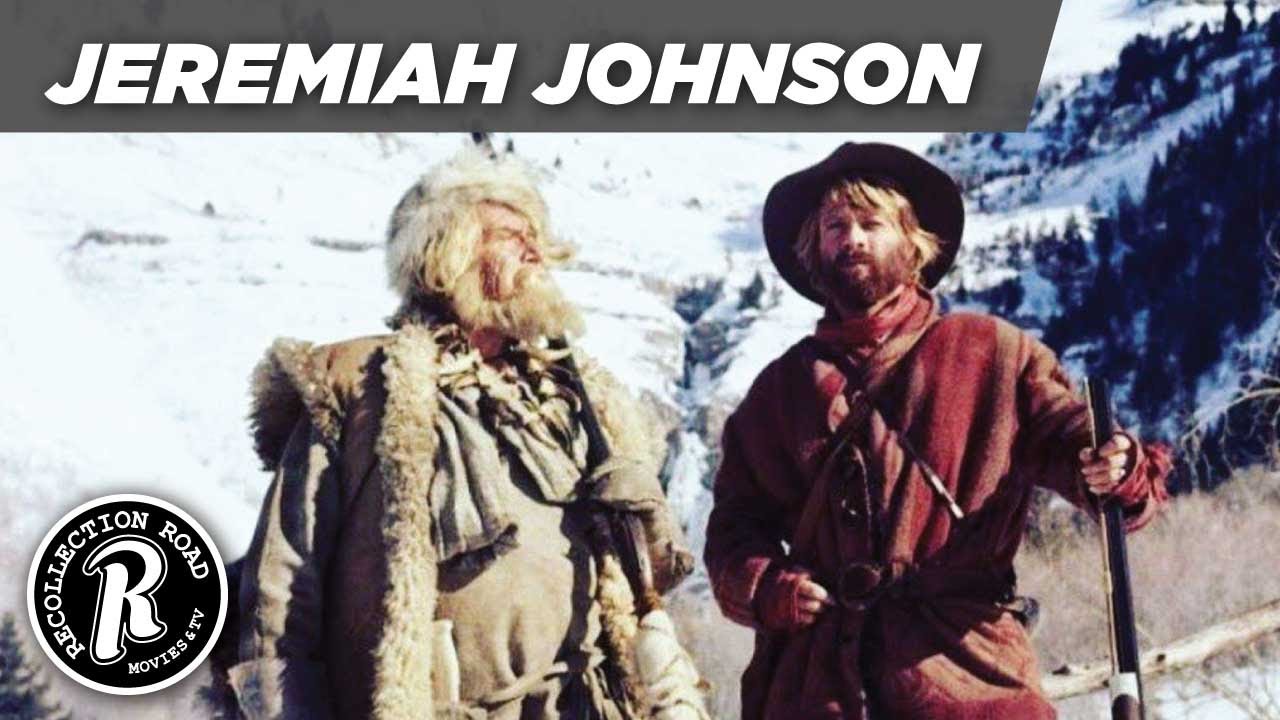Jeremiah Johnson (1972)

Jeremiah Johnson (1972) is an American Western film directed by Sydney Pollack, starring Robert Redford in the title role and Will Geer as “Bear Claw” Chris Lapp. Set in the mid-1800s, the film follows the journey of Jeremiah Johnson, a man seeking solitude and a fresh start in the rugged wilderness of the American West. Based on the real-life story of a frontiersman, the film explores themes of survival, self-reliance, and the harsh realities of life in the untamed frontier.
The story begins with Jeremiah Johnson, a war veteran who decides to leave his troubled past behind and seek peace in the mountains. As he ventures into the wild, he quickly learns that the life he has chosen is not an easy one. With few resources, harsh weather, and dangerous wildlife, Johnson’s quest for solitude is fraught with challenges. His character is shaped by his encounters with nature and the people he meets along the way, including Bear Claw, an experienced mountain man who becomes a mentor to him. The bond they share exemplifies the themes of mentorship and survival in the unforgiving wilderness.
Robert Redford’s portrayal of Jeremiah Johnson is central to the film’s emotional resonance. He brings depth and complexity to the character, portraying Johnson as a man of few words but great resilience. Redford’s quiet performance allows the character’s internal struggles and determination to shine through. As Johnson faces various hardships, the audience witnesses his evolution from a lone wanderer into a seasoned frontiersman who must adapt to the brutal realities of the wilderness. His journey is one of self-discovery and an increasing understanding of his place in the natural world.
The relationship between Johnson and “Bear Claw” Chris Lapp, played by Will Geer, is another pivotal aspect of the film. Bear Claw serves as both a mentor and a guide to Johnson, teaching him essential survival skills and imparting wisdom about living in the wild. The friendship between the two characters is one of mutual respect, and Bear Claw’s rugged persona contrasts with Johnson’s more solitary nature, providing a sense of balance and camaraderie in the film. Geer’s performance as Bear Claw is memorable, embodying the spirit of the frontier with humor and toughness.
Jeremiah Johnson also stands out for its stunning cinematography, which captures the vast beauty and harshness of the American wilderness. The film’s landscapes, shot in the rugged mountains of Utah, are integral to the story, reflecting the isolation and challenges that Johnson faces. The natural world becomes a central character in the film, with the camera often lingering on sweeping vistas and close-up shots of the wilderness that emphasize both its beauty and danger. The cinematography enhances the film’s themes of survival, highlighting the vastness and indifference of nature.
In addition to its visual impact, Jeremiah Johnson is a reflection on the human spirit and the idea of independence. The film explores the cost of self-reliance, as Johnson’s journey is marked by loss, hardship, and the realization that survival in the wilderness often comes at the expense of personal connections. The film does not shy away from the emotional toll of such a life, presenting both the rewards and the profound loneliness that comes with it. It also touches on themes of vengeance and justice, as Johnson faces a conflict with a Native American tribe, further complicating his quest for peace.
In conclusion, Jeremiah Johnson (1972) is a powerful and visually stunning Western that explores the complexity of survival, independence, and the human connection to nature. With strong performances from Robert Redford and Will Geer, the film delivers a poignant narrative about a man’s search for meaning in the wilderness. Its breathtaking cinematography and themes of resilience and solitude continue to resonate with audiences today, making it a timeless classic in the Western genre.


